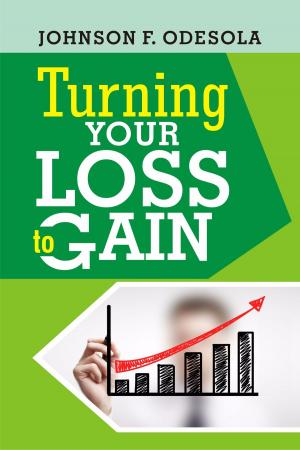Changing How You Think Can Change Your Life
Nonfiction, Religion & Spirituality, Christianity, Christian Life| Author: | Johnson F. Odesola | ISBN: | 9781370163021 |
| Publisher: | Johnson F. Odesola | Publication: | January 31, 2018 |
| Imprint: | Smashwords Edition | Language: | English |
| Author: | Johnson F. Odesola |
| ISBN: | 9781370163021 |
| Publisher: | Johnson F. Odesola |
| Publication: | January 31, 2018 |
| Imprint: | Smashwords Edition |
| Language: | English |
Changing how you think can change your life. And not just in narrow, limited ways. Changing your attitude and your mind-set can drive profound changes throughout all areas of your life. This isn’t just wishful thinking or self-help hype – it’s backed up by sound science. Research consistently shows that optimists – those with a positive outlook on life – live very different lives from pessimists. Consider the impact of optimism in these two areas of life. In fact, many companies now use optimism tests as one element of their hiring practices. Optimistic salespeople, for example, consistently outsell those who are less optimistic, and are less likely to quit. In sports, optimistic professional athletes and coaches perform better under pressure than pessimistic ones. Of course, the belief that optimism is a key driver in success is not new. In the 1950s, for example, Norman Vincent Peale published The Power of Positive Thinking. The book’s message – that faith, prayer and positive thinking were the keys to a successful life – has much in common with modern secular research on optimism. And it was wildly successful. The book had a record-setting run on best-seller lists, and formed the basis of what could be called an “empire of inspiration” analogous in many ways to the multimedia empires of today’s top self-help gurus. Peale wrote a weekly syndicated newspaper column, published a monthly magazine, and even sold long-playing records of his sermons, forerunners of today’s success audiotape programs.
Changing how you think can change your life. And not just in narrow, limited ways. Changing your attitude and your mind-set can drive profound changes throughout all areas of your life. This isn’t just wishful thinking or self-help hype – it’s backed up by sound science. Research consistently shows that optimists – those with a positive outlook on life – live very different lives from pessimists. Consider the impact of optimism in these two areas of life. In fact, many companies now use optimism tests as one element of their hiring practices. Optimistic salespeople, for example, consistently outsell those who are less optimistic, and are less likely to quit. In sports, optimistic professional athletes and coaches perform better under pressure than pessimistic ones. Of course, the belief that optimism is a key driver in success is not new. In the 1950s, for example, Norman Vincent Peale published The Power of Positive Thinking. The book’s message – that faith, prayer and positive thinking were the keys to a successful life – has much in common with modern secular research on optimism. And it was wildly successful. The book had a record-setting run on best-seller lists, and formed the basis of what could be called an “empire of inspiration” analogous in many ways to the multimedia empires of today’s top self-help gurus. Peale wrote a weekly syndicated newspaper column, published a monthly magazine, and even sold long-playing records of his sermons, forerunners of today’s success audiotape programs.















